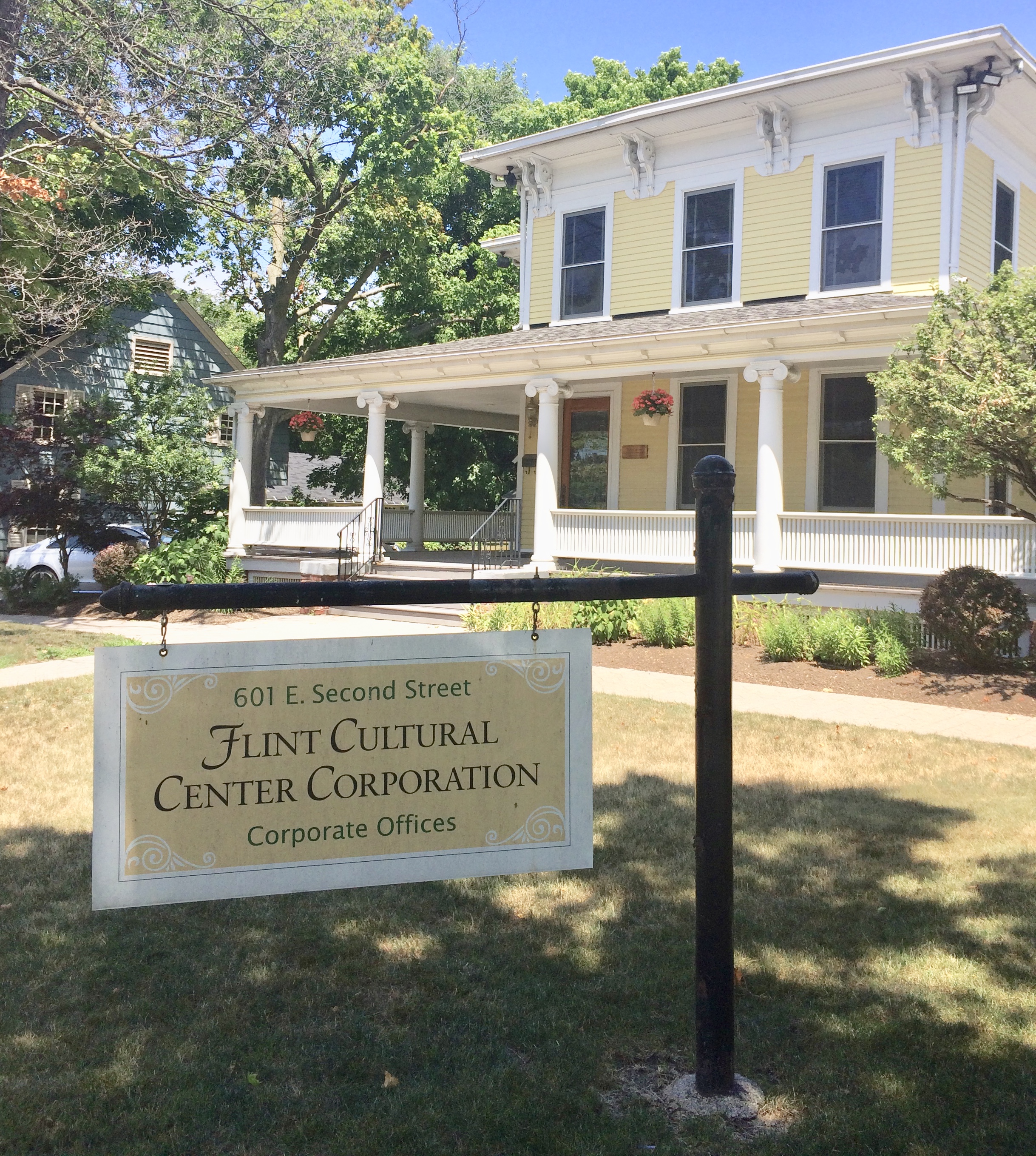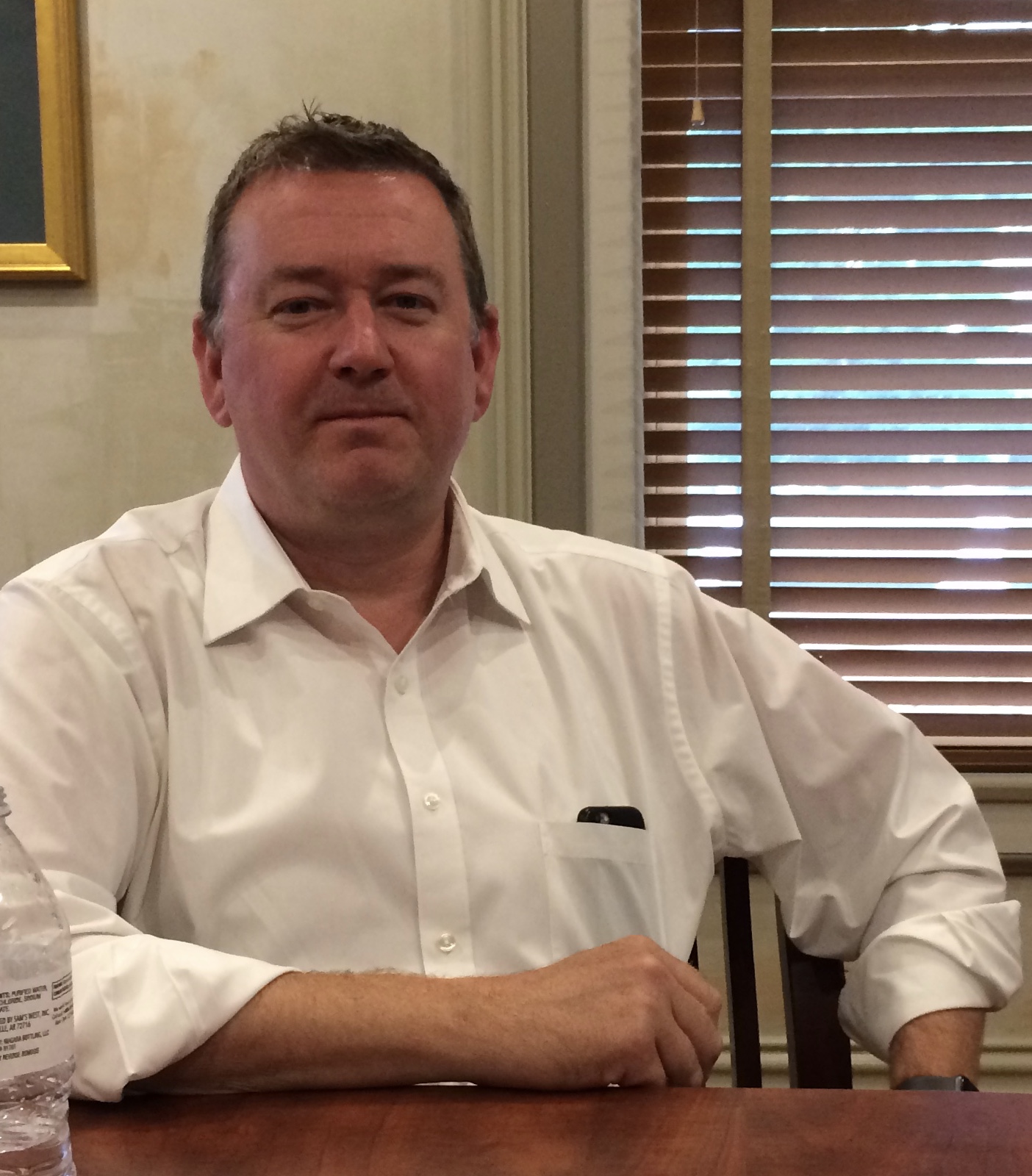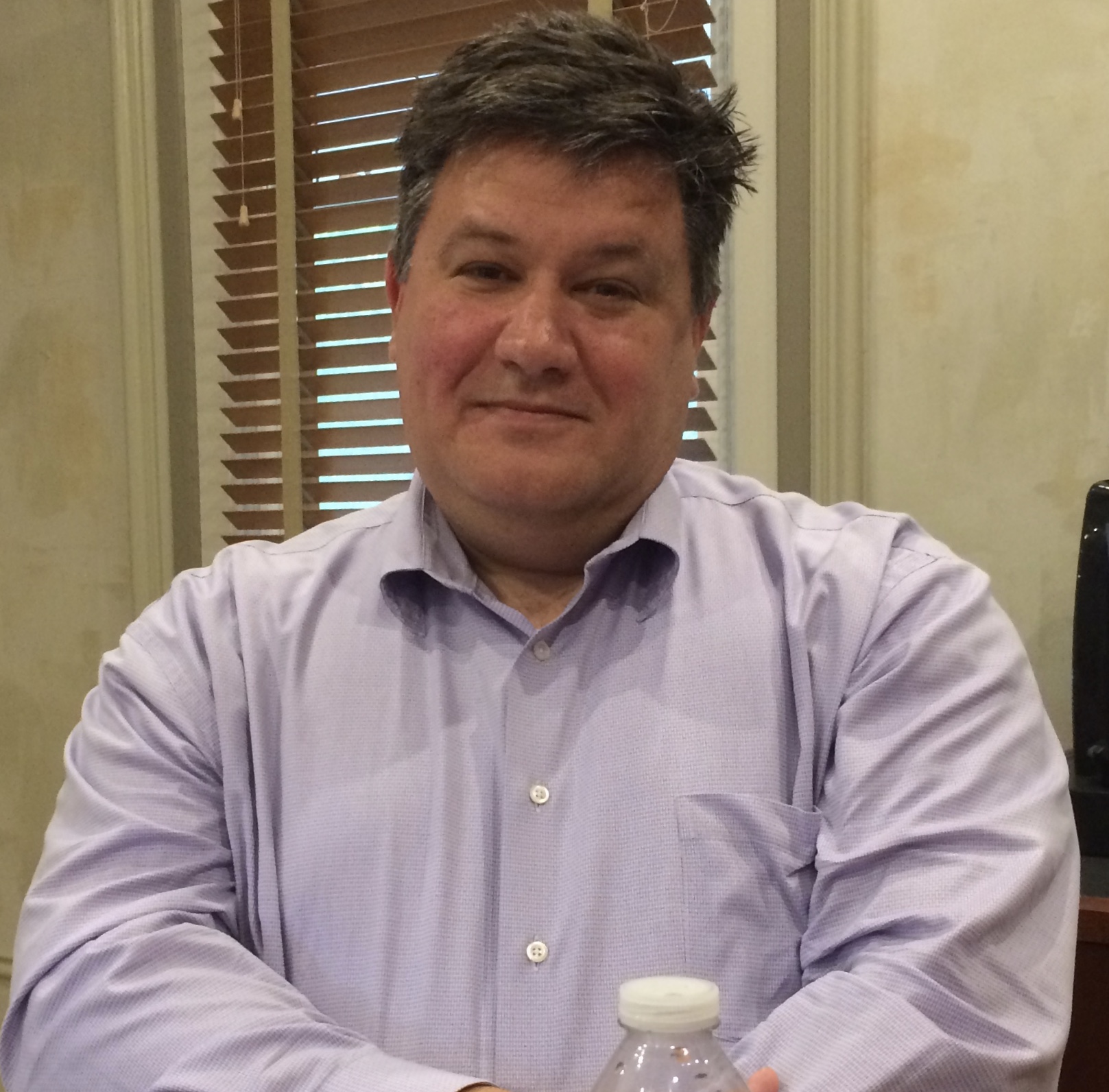By Jan Worth-Nelson
NOTE: We’ve moved this to the top as a reminder: Citizens for A Better Genesee County, the volunteer group which proposed and is promoting the proposal, has scheduled town halls for 7 p.m. Thursday, July 19 at the New McCree Theater, 2040 W. Carpenter Rd.; and 7 p.m. Tuesday, July 24 at the Whiting Auditorium, 1241 E. Kearsley St.
In the lead-up to two upcoming informational town halls and an Aug. 7 vote on a .96 millage for the arts in Genesee County, two executives from the Flint Cultural Center requested an opportunity to talk about the millage. In particular, they said they wanted to address questions emerging from the public about why the millage is needed and asking for greater transparency and accountability about what will happen with the money if taxpayers say “yes.”

FCCC headquarters on E. Second Street (Photo by Jan Worth-Nelson)
Mark Sinila, CEO of the Flint Cultural Center Foundation; and Todd Slisher, executive director of the Sloan Museum/Longway Planetarium, said in a one-hour interview they understand the public’s stake in what they have to offer. If the millage passes, yielding an estimated $8.7 million in property tax revenues per year for the next ten years, Sinila and Slisher said, further transparency will be required and they hope to provide it.
At the heart of it, they said, is their expressed hope to answer whatever needs to be answered, because what the arts have to offer Genesee County residents, especially in light of the community’s recent challenges, is deeply enriching and essential to the common good.
“We put tax money into the roads, the schools, emergency care, and health care. The arts, too, are for the good of society, the fabric of our community,” Sinila said.
The millage would cost the average homeowner about $48 a year for the next ten years. Cultural Center officials have said the revenue, among other benefits, would provide free or discounted admission to the museums and programs at the Kearsley Street campus, as well as at Berston Fieldhouse and the New McCree Theatre. They have noted that if admission fees as they are now were lifted, one visit to the Cultural Center for a family of four would get back that investment.
Responding to questions, critiques and “conspiracy theories” sprouting on social media in recent weeks, Sinila and Slisher along with Randall Thompson, president of Citizens for A Better Genesee County, the volunteer group which proposed and is promoting the proposal, have scheduled town halls for 7 p.m. Thursday at the McCree Theater and 7 p.m. Tuesday July 24 at the Whiting Auditorium.
Who would get what?
At issue for some citizens is how the money would be divided among the dozen organizations which stand to benefit from the millage revenue. Most of the funds would be delivered from taxpayers to the county to the Flint Cultural Center Foundation, which Sinila runs. It would then be distributed to the Flint Cultural Center. including Sloan Museum/Longway Planetarium, the Whiting Auditorium and the Capitol Theater; the Flint Institute of Music including the Flint Symphony Orchestra and the Flint School of Performing Arts; The Flint Youth Theater; and the Flint Institute of Arts. The FCCF also would distribute funds to the Berston Fieldhouse and New McCree Theater, part of an agreement worked out in negotiations with the Genesee County Board of Commissioners who approved the ballot measure in April.
The Greater Flint Arts Council (GFAC) would separately receive $500,000 to be distributed via grants to other arts organizations around the county, according to Greg Fiedler, GFAC president and CEO. Fiedler also said Berston and McCree would each receive in the ballpark of $400,000 per year.
Where is that MOU?

Todd Slisher, executive director of the Sloan Museum/Longway Planetarium (Photo by Jan Worth-Nelson)
Obtaining exact numbers otherwise of who would get what has proven difficult, and a number of citizens pressing for detail have expressed confusion and resentment about why it has been hard to get information, with rumors flying on talk shows and social media, including Flint Strong, a Facebook page which has 12,600 members.
About a rumored “memo of understanding” that some critics had been asking to see, Sinila and Slisher said an agreement on the distributions had indeed been made among all the institutions, but that not all the parties involved had agreed to make it public and that therefore they did not have authorization to talk about it.
“I personally believe in being as transparent as possible,” Slisher said, They said they hoped to bring everybody on board in time for the town halls. However, they said that what had been previously published–that the distributions would correspond proportionately to each institution’s operating budget–is roughly correct.
“What we’re going to have to do is spell that out,” Slisher said. “We need to be more out there.” He and Sinila said they thought initially they had proceeded adequately because of going through the Genesee County Board of Commissioners, an elected body, but now understand that the stakes may be somewhat different when, if the millage passes, all Genesee County taxpayers will be investors in their institutions.
They both affirmed strong confidence in the systems for accountability as already set up in the relevant institutions, which are all nonprofit, independently audited yearly and governed by boards comprised of community members–bankers, accountants, lawyers, doctors, educators –all of whom “have a vested interest in these facilities,” Sinila said. However, they said if additional strategies for feedback between citizens and the arts community emerged, such as an “arts ombudsman” as some have proposed, they would listen.
Why do they need the money?
Sinila and Slisher had a lot to say about why the millage is needed. For them, the three-chambered heart of the matter is a shrinking donor base, the need for stability in operating funds, and worrisomely predictable infrastructure and security needs.

Flint Cultural Center Foundation CEO Mark Sinila (Photo by Jan Worth-Nelson)
“The philanthropic community–the donor base–is shrinking, while everything is becoming more expensive,” Sinila said, “and there’s concern about that.” While donor amounts vary from institution to institution–donations to the Sloan make up 38 to 40 percent of yearly revenue, Slisher said–the ability to plan from year to year, especially when costs are going up, is challenging. “We’re very aware that if you have a bad fundraising year, you can get into problems.”
The millage would provide what Slisher called a “stabilized funding stream,” more predictable than fluctuating donations. If the base operating costs are covered, he said, donors could then be approached for programming proposals and initiatives — more attractive to some than what it takes to keep the lights on.
“We have an aging infrastructure,” Sinila noted, “buildings that have been around since the 50s and 60s, and we have increased operational costs, insurance, liability and health care costs, labors costs, equipment to maintain the lawns — our air conditioning units are aging, and we’re going to need some new roofs soon. We’re trying to think into the future. Our job is to assure that our institutions will remain and be strong beyond our lifetimes.”
Further, he noted, the institutions are increasingly focused on safety for patrons, and that requires people, cameras, radios. “We want people to see the security when they park their cars and feel safe when they walk around campus,” he said. “We want the place to be well-maintained, inviting and embracing.”
The two executives said while numbers of visitors are in the many thousands every year — 65,000 school kids a year for Sloan/Longway alone, Slisher said–they hope for even more. The educational functions by themselves provide much needed support for Flint and Genesee County schools, he said.
“With the millage, we’ll have the ability to reach out to more people,” Slisher said. “Arts people in general, we’re a pretty open network–we’re all on the same page. The arts are for everybody.”
When Slisher arrived from his previous job at the Detroit Science Center four years ago, he was amazed — the facilities are, to him, a gem not just by Flint standards but in comparison to much bigger cities like Boston or Chicago.
“This is a public place that people come to as a positive destination. The millage will help the economy with jobs and home values, and it will put Genesee County on the map in new, sustainable ways,” he said. “We want people to flock here.”
Sinila agreed. An escapee from a high-tech career in Lansing who played the French horn and piano and once considered a music major, his job at the FCCF is a gratifying opportunity to support the arts he says he has loved since childhood.
“We want this to be a ‘feel good’ place,” Sinila added. “It’s good for the community. Instead of having bad news–forget the water for a time, forget politics for a time–we’ve got something positive here.”
This story was updated on Monday, July 17 to adjust one incorrect reference on who runs the Flint Cultural Center Foundation. Mark Sinila is the CEO. Todd Slisher is executive director of the Sloan Museum/Longway Planetarium.
EVM editor Jan Worth-Nelson can be reached at janworth1118@gmail.com.


You must be logged in to post a comment.